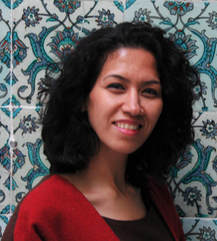|
By Khadija Abbasi & Alessandro Monsutti Migration of young Afghan to Europe is structured by a moral economy that has a twofold dimension. First, it implies a social system of exchange and redistribution between young migrants and their relatives who stayed behind. It is underpinned by a code of conduct implying mutual obligations and collective responsibilities, by a system of values and solidarity, norms and social obligations that defines their success as migrants. Second, migration is characterized by the high pressure to succeed. Prompted by their quest for autonomy and recognition, the migrants become increasingly aware during their journey that only a few of them will be able to settle down in Europe. The relationships among young candidates to asylum are imbued by competition and jealousy. These young migrants are invested in the double mission of preparing a better future for their family and proving their individual value. In such a context, many young Afghan migrants share their hopes and frustrations on the cyberspace, across geographical, social and gender boundaries. Migration and the status of forcibly being displaced are recurrent topics and are addressed with ambivalent feelings: suffering and separation, but also opportunity and autonomy. When Afghans talk about their experience of mobility, the term āwāragī is mostly used. It means ‘wandering,’ ‘vagrancy,’ while āwāra refers to a person who is in the state of āwāragī, a wanderer, a vagrant. The semantic field also implies the idea of being separated from one’s homeland and having to change one’s location against one’s own will. Ghorbat is another word recurrently associated with āwāragi. It describes the status of being a stranger and lonely in a place different from one’s homeland. The two terms have negative connotations and are often used interchangeably. Two terms with religious connotation, mohājerat, which means ‘migration,’ and mohājer, which designates a person who has migrated out of his/her home country, are nowadays much less commonly used than among the previous generations of Afghans who took refuge in Pakistan and Iran. An online conversation between various transnational young Afghans may serve as an example: – Zari, a female Afghan whose application for asylum in Germany is currently under review, writes on her page on Facebook: “āwāragī means to be born in Tehran, to be thrown away to Kabul, and, to stay in Berlin; but nowhere you live the life.” The post triggered many comments. Zari describes herself as an āwāra who cannot enjoy the journeys imposed on her. – Shafiqa, newly settled in Australia, reacts: “Stay āwāra as there is death in immobility.” – Zari: “I feel upset when I remember the reality of being an āwāra.” – Shafiqa: “āwāragī is in the blood of our generation. Just imagine! In three decades, we have experienced the misfortunes of three centuries. Despites this, we still should stay alive.” – Zari: “In these three decades, three generations became āwāra and the fourth generation is on the way but without home, in suspension, and with no identity.” – Suraya, based in the United States: “Dear Zari, life is not something beyond this. That’s life.” – Zari: “Our life is an absolute āwāragī.” – Hashmat intervenes with a free verse: “We should put the framework of our identity under our arm [as a sign of leaving], as the walls of home have rotted and we are still āwāra in the streets that are not going to warm [welcome] us.” – Zari: “The streets that did not warm us and the rotted walls that could not bear framework of our identity.” – Hashmat: “And if these rotted walls collapse, thousands and thousands of the lost people will rise from under soil.” – Kousha, based in India adds: “āwāragī means to be uprooted.” – Munirah: “I was born in Kabul, granted asylum in Hamburg, but this is just the beginning of my story... Then, I am thrown to Norway – everything had to start from scratch – and then I am thrown to England – everything from scratch again –, then I am thrown to Scotland – everything from scratch again – and maybe soon I’ll be thrown again to another place. Perhaps life is all about this constant uprooting?” – Sadiq: “We are an āwāra generation.” – Shafiqa: “The generation of being in continual āwāragī, moving from one ghorbat to another. Even if you are not thrown from one land to another, the fact that your mind is uprooted is enough to prevent you to rest in one place, even in the land that has granted you asylum. There is death in immobility.” For transnational Afghans who took part in this conversation, the conventional concept of home does not suit their situation with a multi-local sense of belonging and loneliness. They question the notion of home for a generation who grew up and reached adulthood in mobility. They contest the notion of home for people who were born as refugees in the country of asylum. Shafiqa used a Sufi trope to respond to Zari’s complaint of being āwāra: “There is death in immobility.” In so doing, she rationalizes her hyper-mobility. Shafiqa and Zari are amongst the generation who were born refugees to Afghan families in Iran. Zari left Iran for Germany and Shafiqa settled in Australia. Both left Iran to Afghanistan in search of home. Both left Afghanistan disappointed and continued migration in search of a better life where their sufferings and exclusion are recognized. But the streets in Germany, Norway, England, Australia, the United States are not welcoming. There is no apparent end to the wandering life of the āwāra generation; āwāragī is not a transient period of life but becomes an ontological status. These young people inhabit mobility. On the one hand, they feel that their plight is not understood by their relatives left back in Afghanistan or the countries of first asylum, Pakistan and Iran. On the other hand, their everyday life is dominated by competition and suspicion among peers, as only a few of them will be able to get a protection status and settle down in Europe. The cyberspace acquires a crucial importance for them, it is the realm where they can express themselves much more freely than in face-to-face relationships, address their dissatisfaction and magnify their aspirations.
0 Comments
|
Archives
June 2022
|
No part of this publication may be reproduced, stored in a retrieval system or transmitted in any form or by any means, electronic, mechanical, photocopying, recording or otherwise, without prior permission of the copyright holder, except for the inclusion of quotations properly cited.
Published in Vienna, Austria by ROR-n.


